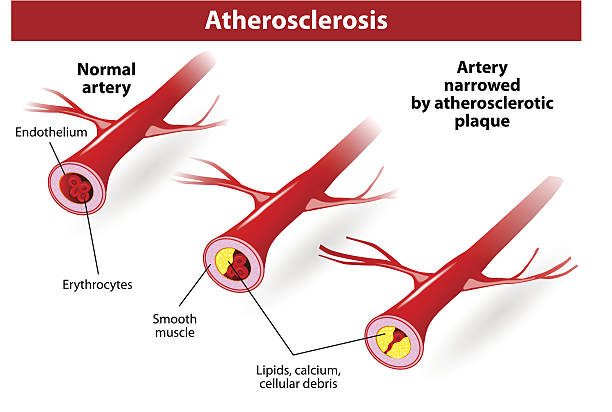
Nuclear Cardiac Imaging Showcases Metabolic Habits of Plaque in Cardiac Patients
Atherosclerosis, the slow but progressive buildup of plaque within and on artery walls that disrupts blood flow, is a steady and often symptom-less medical condition that many patients do not realize they have until experiencing a major cardiac event. Atherosclerosis of the aorta specifically can cause tearing or stretching of the aorta, and a blood clot is always a risk at any time with this disease.
Unfortunately, since atherosclerosis also results in inflammation of the arterial walls, this condition also poses a risk of plaque rupture. Unsurprisingly, atherosclerosis significantly increases the risk of stroke and heart attack.
Conventional clinical imaging displays the degree of stenosis, such as is seen in aortic atherosclerosis on a CT scan. However, with PET images of atherosclerosis, cardiac physicians are able to see not only the extent of the blockages, but also the metabolic processes within them.
Radiotracer activity, and the increase in radiotracer types, has allowed for such detailed imaging through PET. While CT scans for atherosclerosis and other forms of clinical imaging undoubtedly provide diagnostic value, PET imaging provides more insight into the significant factors which contribute to the development, aspects, and changes in plaque destabilization. For example, PET can help physicians distinguish more clearly when there is a high risk of plaque rupture. (Source: www.ncbi.nlm.nih)
Contact Us at Cardiac Imaging for Innovative Access to PET
PET is already a well respected, advanced nuclear imaging tool that brings insight and clinical accuracy to cardiac diagnostics and treatment planning. Knowing how PET can improve prognoses for those with atherosclerosis, and identify the problem in individuals who experience no symptoms, are merely additional reasons for physicians, and most specifically cardiologists, to invest in positron emission tomography at their own practices.
Contact us at Cardiac Imaging if you want to learn more about our fixed site imaging and PET mobile imaging clinics.
